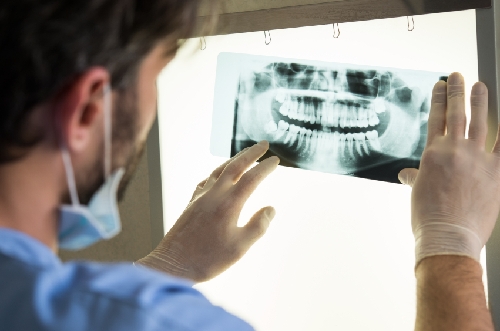
One of the hazards of talking about studies is that it is very easy to fall for hype, especially if your knowledge comes from the second-hand reporting of other news institutions. For instance, a new study from the University of Buffalo has just linked antidepressants to dental implant failures. To readers, such news may be worrisome. After all, dental implants are important for proper chewing and enjoyment of food (on that note—there are some foods that can influence oral health in the same manner that the consumption of other foods can affect the development of chronic diseases).
However, moving a bit past the sensationalism reveals that this story is a good way to understand how to stay sensible and sound when it seems that every few days a new finding comes out about this food or that disease.
University Of Buffalo Study on Antidepressants and Tooth Implant Failures
Researchers from the University of Buffalo found that 33% of people who suffered dental implant failures were on antidepressants while only 11% of those who did not suffer dental implant failures were on antidepressants. One of the possible side effects of antidepressants is osteoporosis, and dental implants need bone growth to stay secured. The number of participants, data collection methods, and even the types of antidepressants in question are not currently available.
The terminology surrounding scientific studies is often very precise and can sometimes differ from what the conventional definition is. For instance, the University of Buffalo study is specifically mentioned as a “pilot study”. This is integral for one very singular reason: pilot studies are incapable of proving or establishing anything. A pilot study’s purpose is to determine whether there is something worth investigating and, if so, how that subsequent study might be carried out. This bears repeating: a pilot study, by definition, cannot prove anything or establish any links.
What the Buffalo researchers found is two pieces of data—antidepressant use and dental implant failures—that if put side-by-side seem to relate to each other. They do not know if any causal connection exists between the two and, if there is such a connection, how it might work or why it happens. Two dots do not make a line.
To be clear, none of this is meant to direct scorn or blame on the researchers themselves. Going over the press release shows it to be free of unsubstantiated claims and it makes it clear that the results are going to be used to direct future research.
Stay smart, stay skeptical, and chew thoroughly.
Sources for Today’s Article:
Robinson, M., “Antidepressants linked to tooth implant failure, new study finds,” University at Buffalo web site, March 7, 2016; http://www.buffalo.edu/news/releases/2016/03/020.html.
“Antidepressants Linked to Tooth Implant Failure, New Study Finds,” ScienceDaily web site, March 8, 2016; http://www.sciencedaily.com/releases/2016/03/160308140819.htm.












